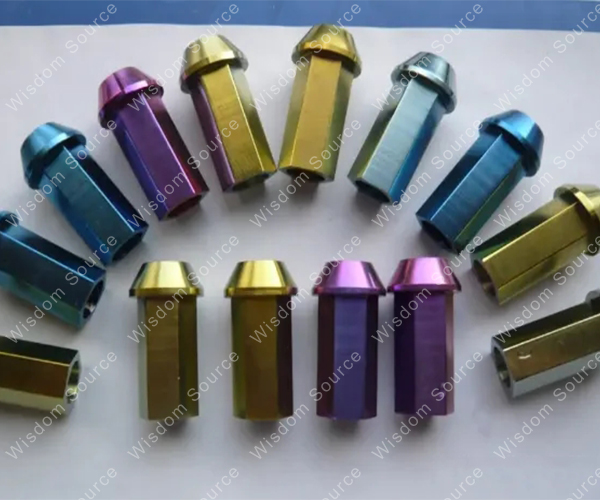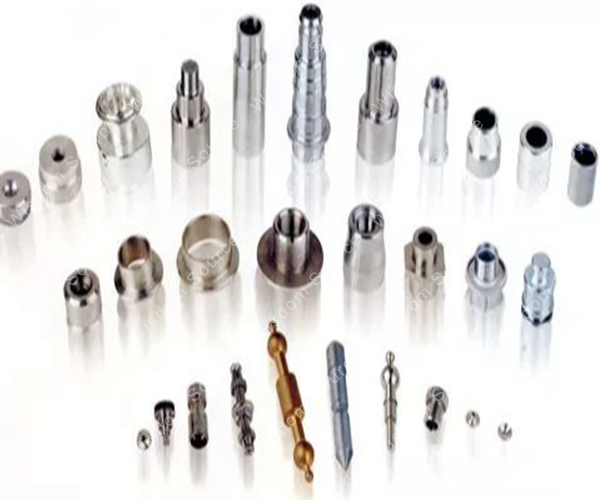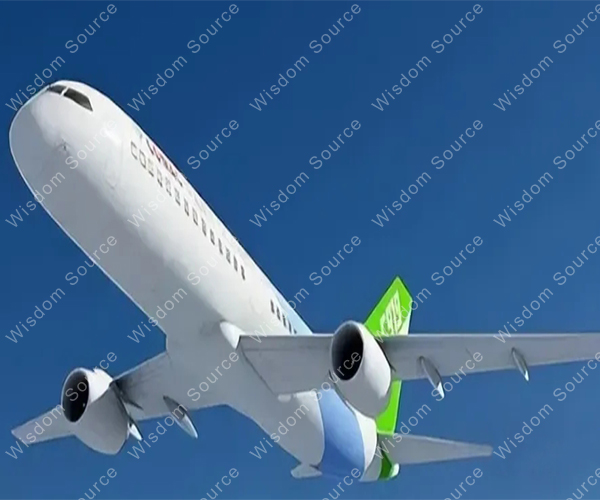Wide Application Of Titanium Alloy Fasteners
Wide Application Of Titanium Alloy Fasteners
In life, a small screw is commonplace, and some are even children's toys, but it is this small screw that plays a huge role in all walks of human life. Its birth has made a qualitative leap in the development of human industry. People call screws and their ilk “fasteners” in the industrial field. Fasteners are called the "rice of industry”. Academician Wu Guanghui, the chief designer of the C919 large airliner, praised the fasteners as “tens of thousands, divided into groups, connecting structures, connecting systems, and small things.” And because of the different application fields, people use different metal materials to make fasteners.Today, the author will take you to systematically understand titanium alloy fasteners and their wide application.
Advantages Of Titanium Alloy Fasteners
1. Low Density, High Strength, High Specific Strength:
Compared with steel materials, titanium alloys have low density and light weight. The extensive use of titanium alloy fasteners can significantly reduce the quality of machinery and reduce energy consumption. This is not only an environmental protection issue, but also an obvious economic cost. The strength and specific strength of titanium alloy are better than that of aluminum alloy, and it is obviously more adapted to some extreme environments, such as space and the ocean, than aluminum alloy.
2. Strong Corrosion Resistance:
Titanium is not corroded in some corrosive media, such as seawater, wet chlorine, chlorite and hypochlorite solutions, nitric acid, chromic acid, metal chlorides, sulfides, and organic acids. Titanium alloy fasteners are widely used in marine engineering, chemical refining and other fields.

3. Good Heat Resistance:
Usually aluminum loses its original properties at 150℃, stainless steel loses its original properties at 310℃, and titanium alloy still maintains good mechanical properties at about 500℃. When the speed of the aircraft reaches 2.7 times the speed of sound, the surface temperature of the aircraft structure reaches 230℃, aluminum alloy and magnesium alloy can no longer be used, while titanium alloy can meet the requirements.
4. Non-Magnetic:
Titanium is a completely non-magnetic metal, so fasteners made of titanium alloy are more suitable for use in various precision machinery to avoid additional magnetic influence on these machinery. In the aerospace industry, the non-magnetic properties of titanium alloy fasteners are very important.

5. Small Coefficient Of Thermal Expansion And Elastic Modulus:
The coefficient of thermal expansion and elastic modulus of titanium alloy materials are smaller than that of nickel alloy and steel materials. Within the same temperature change interval, the thermal stress generated by titanium alloy is very small, so titanium alloy has high thermal fatigue properties.
6. High Appearance Value:
The surface of titanium can show a variety of colors, so it is also called “colored titanium”. This kind of ”coloring" skill is a unique characteristic of titanium, and titanium alloy fasteners are no exception. Many people like to use colorful titanium alloy fasteners to highlight their unique characteristics.
Application of Titanium Alloy Fasteners
Titanium alloy fasteners have very excellent overall performance and are suitable for use in many industries:
1. Aerospace:
The application of titanium alloy fasteners originated in the aerospace field. Dating back to the 1950s, the United States took the lead in applying titanium alloy bolts to B-52 bombers, and achieved significant weight loss results.
The history of titanium alloy fasteners in our country began in 1965. In the 1980s, a small number of titanium alloy fasteners such as rivets and bolts began to be used on some second-generation military aircraft in our country. In recent years, China's research and development of titanium alloy materials and fastener manufacturing technology have been continuously improving. Titanium alloy fasteners are widely used in the aerospace field and are also very impressive in civil aircraft.

2. Marine Engineering:
In the marine environment, titanium alloy fasteners can effectively resist the erosion of seawater, improve the service life of machinery and facilitate maintenance. The non-magnetic titanium alloy fasteners are very suitable for the object of a submarine and will not cause the explosion of a mine.Chemical industry: Chemical industry has always been the largest field of titanium used in China, and the role of titanium alloy fasteners in this industry cannot be ignored.
3. Civilian Field:
Titanium alloy fasteners are also widely used in cycling, medical and other fields, bringing convenience and well-being to people's lives and health.
With its excellent overall performance, titanium alloy fasteners play an important role in aerospace, marine engineering, chemical industry and civil fields. Although the price of titanium alloy is relatively high, with the progress of titanium material production technology, the application of titanium alloy fasteners in the civilian field will definitely be better promoted.
